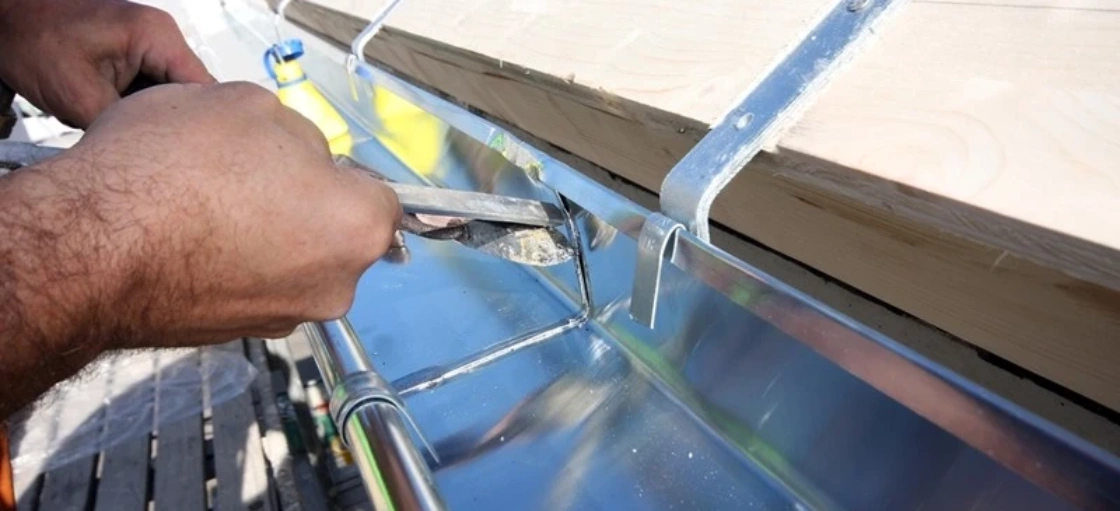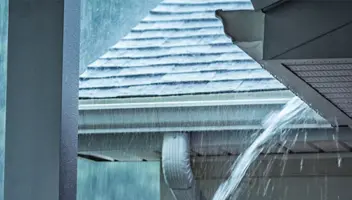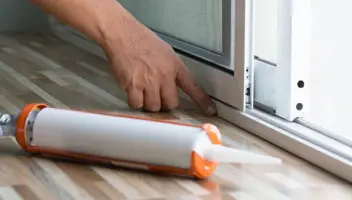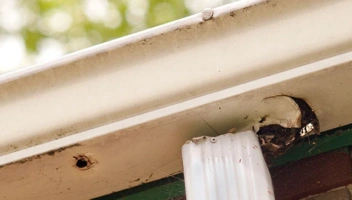How to Choose the Best Gutter Guard

If you’ve ever had to deal with the unforgiving wrath of a clogged gutter, you certainly don’t want to have to deal with that type of ordeal again. Installing a gutter guard is the easiest way to avoid the consequences of debris buildup, which can include everything from water leaks in your basement to climbing up on rickety ladders. But what should you look out for when purchasing a gutter guard that will best protect your home? For anyone fed up with manual gutter maintenance, here’s a few things to keep an eye on when choosing the best type of gutter guard for your house:
Screen or cover?
When it comes down to it, there are so many types of gutter guards on the market that it can seem overwhelming to choose just one. There are several distinct styles of gutter guards, but screens and covers tend to be the most popular selections. While screens are generally cheaper than covers, they can certainly lack in durability. A screen gutter guard acts as a filter that serves to keep out larger pieces of debris while still letting in water. The screens tend to be created out of a metal mesh, and while larger chunks of debris such as leaves will be separated, smaller pests and pine needles may still work their way through the screen, especially is there is no cover. Screens can be thin, but depending on the material, longevity and sturdiness are are usually not problems.
A cover type of gutter guard will work to keep all types of natural elements from clogging your gutter, including water. It rests atop your gutter, sitting at a slanted angle so water slides off the side rather than accumulate in your gutter. Because they essentially act as a roof, covers can help keep out a wider variety of debris, however, pine needles, twigs or even mosquitoes can still be discovered if thereis no built-in screen installed.They tend to be built with strong material, so you can count on gutter guards lasting you for quite some time.

Other types of gutter guards
Besides screens and covers, brush and foam are other types of available gutter guards. One of the convenient qualities of foam gutter covers is that they’re extremely affordable and relatively easy to install. However, the biggest knock on them is that they tend to be a quick solution to a long-lasting predicament. Foam guards are crafted from cheaper materials, meaning that severe weather may cause more wear and tear on the gutters guards themselves than originally expected. They also will trap various types of seeds and plants inside your gutter, which can eventually lead to mold accumulating along the edge of your roof. Another overlooked quality of foam guards is that they are flammable, so if any accidents arise, your gutters could become a potential fire hazard.
As for brush guards, they are extremely similar to foam guards, in terms of being more of a temporary fix for your gutter. While they work to keep out the bigger forms of debris, smaller debris can get stuck within the brushes, which can create significant buildup over time. Even larger leaves, pine cones and seeds can be lodged within brush guards, so you might find yourself having to break out the ladder to clean them off on occasion. Brush guards are also known to attract birds and squirrels as a resting spot, as if leaves and pine cones weren’t enough of a hassle!
“What it all comes down to is having a gutter guard that keeps your gutters clog free.”
Don’t settle for less
What it all comes down to is that you want a gutter guard such as LeafFilter that’s going to keep your gutters clog free so you don’t ever have to think about cleaning them. LeafFilter is a screened cover, made from metal with punched holes that serve as a frame to support the stainless steel micro mesh that won’t even let a grain of sand into your gutter system. LeafFilter is the ultimate combination of screen and cover protection, and guarantees only water will infiltrate your gutters, allowing you to never have to endure the wrath of extreme gutter congestion.


